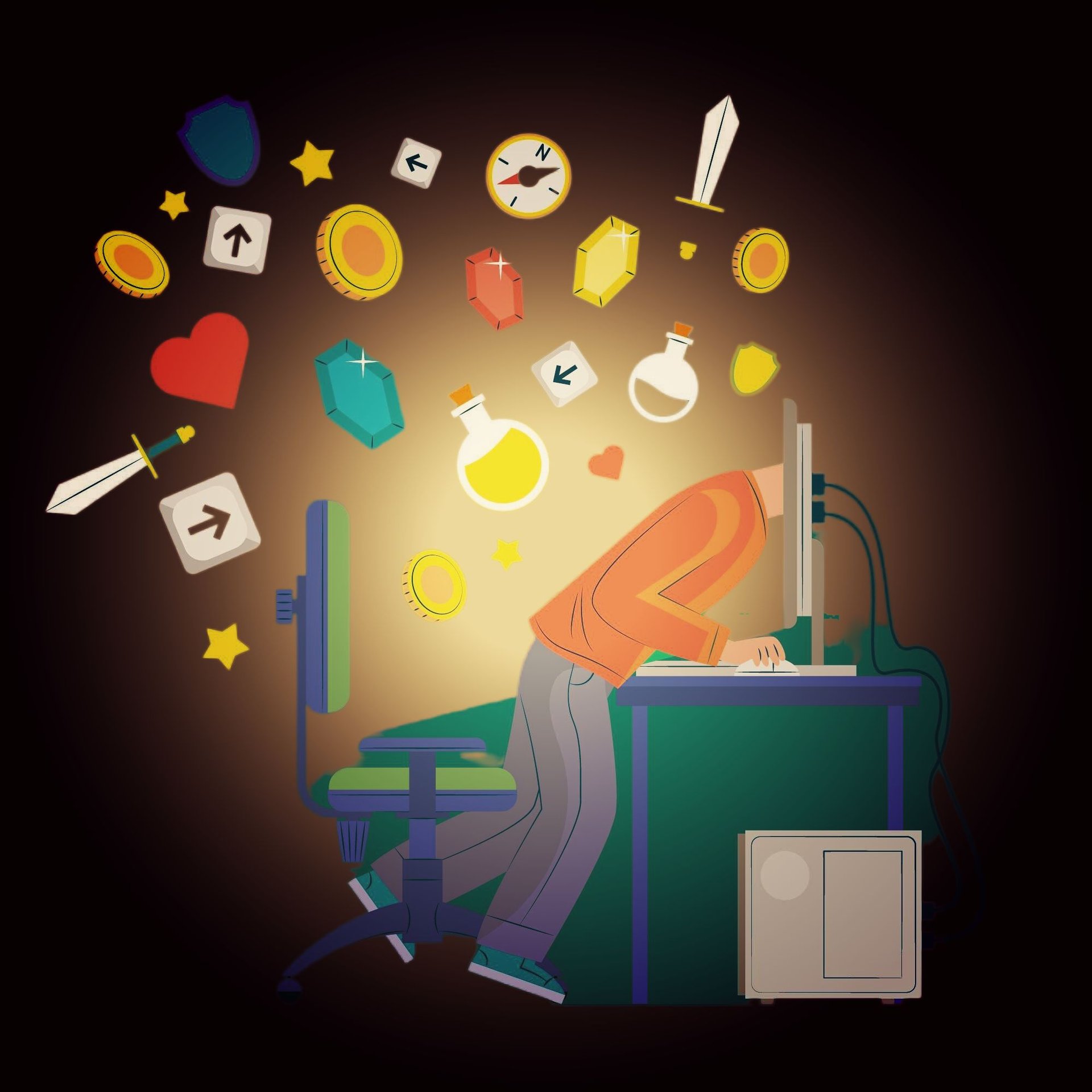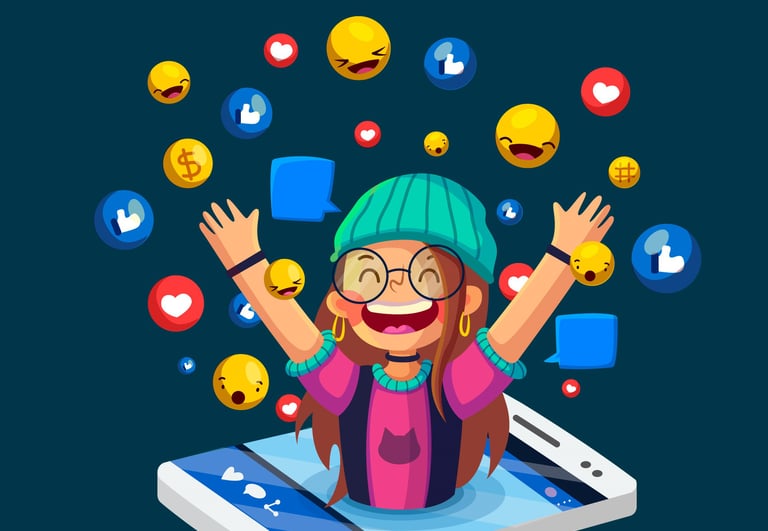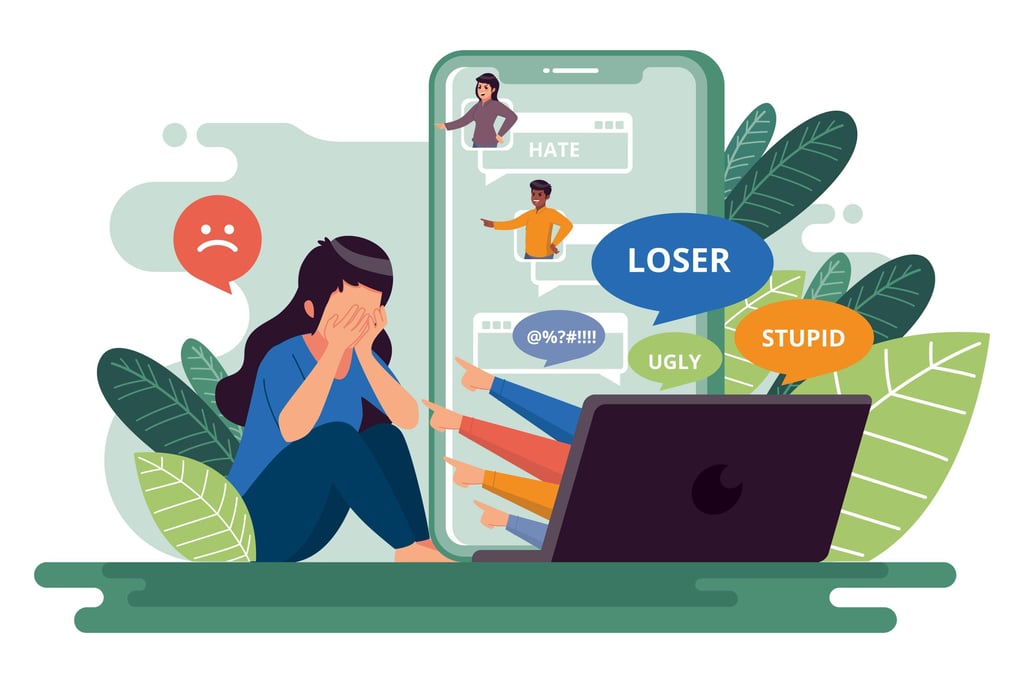How Social Media Affects Our Mental Health
The impact of social media on mental health are now widely discussed as it affects our mental health and makes it difficult to live a balanced life.
Faiza Zulfiqar
2/16/20259 min read


Did we ever think that our lives would become such that social media would become an important part of our lives? In every household, it is used so extensively that we cannot even conceive of our lives without it. When I tell my children that there was a time when we lived without social media, they refuse to believe it. I am surprised at this, what is so surprising about it? Do they think I was born in the Stone Age?
Jokes aside, social media isn’t as bad as we think—it comes with some amazing benefits. Like keeping us connected with friends, family, and relatives, no matter where they are. It feels as if they are not far away at all. Through it, we can learn many skills from home. It facilitates our jobs. In short, making our lives easier. There are many advantages to it. However, along with these benefits, there are also many challenges.
The impact of social media on mental health may not have been discussed as much before as it is now. While it gives us vast access to information it also severely affects our ability to concentrate and makes it difficult to maintain a balanced life.
In this blog, we will explore its positive and negative aspects and how we can maintain a balance between them so that we can fully benefit from it while minimizing its drawbacks.
Positive Side of Social Media
Social media platforms provide many benefits that enhance our mental health. The following are the four key positive aspects, and I share examples of how they work in our daily lives.


1. Strengthening Relationships
My days always brighten when my brother and nephew video call me. Even though they live thousands of miles away and it's been years since we've met in person, their video calls make it feel like they're right here with me. Amazing apps like Zoom, Skype, Google Meet, Facebook Messenger, and WhatsApp make it easy to chat with family and friends. These platforms let us join in on events like birthdays, weddings, and funerals through video calls, no matter the distance. For instance, once I couldn't attend a family reunion in person, so I joined via video call. It lifted my spirits and made me truly appreciate the benefits of social media.
By strengthening relationships, social media boosts our emotional resilience. When we feel connected, we cope better with stress and feel supported during challenging moments. A strong social network provides us with a sense of belonging and security. Even if you feel isolated, in your surroundings, online interactions can remind you that you are not alone.
2. Access to Supportive Communities
Have you ever felt like you were the only one going through a difficult time? Social media has eliminated this sense of loneliness. It provides various platforms where different groups and forums exist, allowing us to share our good and bad experiences and support each other.
Whether you are struggling with an illness or facing any other issue, these groups offer online communities that understand your challenges and concerns. For example, platforms like Reddit, Facebook groups, and Telegram host communities where members share their stories, offer advice, and support each other.
When I was struggling with depression, these online communities and groups helped me a lot. Members of mental health groups on Facebook shared practical tips on how to manage stress and anxiety. I often think about how I would have coped with my depression if I hadn’t had these online friends.
These online groups create a safe space where no one knows each other personally, yet everyone is willing to listen, understand, and learn from one another. Another major benefit of these supportive communities is that they reduce loneliness. When you read about others’ life experiences that resonate with your struggles, you see how they have overcome their challenges. This lights a spark of hope and inspires you to take positive steps toward improving your life.
These online supportive communities help you build resilience. Moreover, almost everyone faces struggles, they remind you that you are not the only one battling life’s challenges. By sharing our experiences, we can learn from one another and offer support to help each other navigate difficult times.
3. Easy Access to Educational Resources
Social media isn't just for connecting with others; it's also a place to learn. Many respected groups share helpful information about mental health on these platforms. I've followed several mental health experts and organizations on Instagram and Twitter. Their posts provide insights, coping strategies, and advice on maintaining mental well-being.
For example, the National Alliance on Mental Illness (NAMI) and the World Health Organization (WHO) use social media to teach the public about mental health issues. They often share infographics, videos, and expert interviews that make complex topics easy to understand.
When I need trustworthy advice, I turn to these reliable sources. Social media helps me stay updated on the latest research and strategies for mental wellness. This easy access to educational resources empowers individuals to take control of their mental health. It makes mental illness less mysterious and encourages open conversations about seeking help.
4. A Platform to Express Creativity
Do you like showing your artistic abilities to others and receiving positive feedback? I enjoy it. Social media provides a good place where everyone gets a chance to express their creativity freely. Whether painting, writing, cooking, or dancing, you can share your creations with people everywhere. Social media gives people a big chance to share their creativity for free, and for many, that can be a huge boost to mental health.
I recently watched a YouTube video where a young boy talked about how baking helps him manage anxiety. He shared short videos of his whole baking process, inspiring others to adopt their hobbies as a form of self-care.
Sharing creativity is more than just fun—it helps people feel heard and builds confidence. When people share their work, they often get kind words and support. This makes them feel good about themselves and helps stop negative thoughts. By encouraging creativity, social media can help people feel happier and more positive.
Negative Side of Social Media
As we all know social media has benefits, like everything it also has some negative effects that can harm our mental health. In this section, I will talk about four major drawbacks and explain each one with simple examples and personal thoughts.
1. Harmful Comparisons and Unrealistic Expectations
While using social media have you ever felt like you are the only one with such a boring life? In social media platforms, the majority of the time people share only the good things in their lives and that leads to harmful comparison. It can also cause insecurity, setting up unrealistic expectations and goals. Especially for teenage girls, when they see celebrities and influencers with their perfect bodies, it is not good for their self-esteem and body image. Those influencers and celebrities have hired makeup, and hairstyling teams and they apply several filters on their pictures to make them look even more beautiful, gorgeous, perfect, and flawless. As a result, they start to develop negative thoughts about themselves and focus on their flaws, making them feel like they’re not beautiful. Constant exposure to unrealistic beauty standards affects their self-image and can lead to serious mental health problems.


2. Cyberbullying and Online Harassment
Since the use of social media platforms is on the rise, equally so is cyberbullying and harassment. It comprises abusive emails, nasty messages, and rude comments on the posted pictures and videos. These all can lead to severe mental health issues. Cyberbullying is as serious as traditional bullying and in some cases even worse because it can be severe and almost impossible to run away from. Unfortunately, Victims of cyberbullying often become hesitant to seek any assistance due to the harsh nature of digital abuse.
Sometimes, social media lets people hide behind fake identities, which makes bullies feel more confident. This doesn’t just hurt the person being bullied, it also creates a toxic, unsafe space for everyone. Dealing with cyberbullying can leave you feeling down, anxious, depressed, and completely helpless. Stopping cyberbullying is a big challenge for social media platforms and society.
3. Social Media Addiction
Don’t you ever feel that when you are using different social media platforms, you end up wasting a lot of time? All of this is due to social media addiction. This addiction can affect your time management skills. Spending too much time on social media and always checking notifications makes it harder to keep up with everyday tasks and responsibilities. It also impacts your real-life interactions and can hurt your overall productivity. It can increase stress levels and at the same time interfere with your sleep cycle. The fear of missing out (FOMO) keeps many people constantly checking their social media, to the extent that valuable time gets wasted. When they realize how much of their time has been wasted their stress level increases, and they become frustrated, and ultimately, it affects their mental health.
4. Information Overload and Sensationalized Content
Do you sometimes feel overwhelmed by seeing too much information on social media? It’s not just you. Many people go through it. I remember during the COVID-19 pandemic, there was so much negative, confusing, and exaggerated news that it was hard to tell what was real and what wasn’t. It created this nonstop chaos, so I took a break from social media. Information overload happens when we're hit with way more info than we can handle. In today’s digital world, everything is just a click away. Unfortunately, much of such content is misleading, negative, and designed to provoke strong reactions, often through fear-mongering. When constantly exposed to such stories, it becomes difficult for us to identify what matters.
5 Strategies to Balance Social Media Use
As we all know, social media has become a big part of our lives. However, just like with anything else, balance is important. So, how can we make the most of social media's benefits while avoiding its downsides? Here are some simple strategies that I’ve found helpful.
1. Set Time Limits
One of the best things you can do is set specific times to check social media. I use my phone’s built-in tools to remind me when to log off. Trust me, limiting screen time helps reduce stress and keeps you more productive.
2. Curate Your Feed
Take control of your digital space. Follow accounts that inspire, motivate, and bring joy to your life. If certain pages or people make you feel bad then unfollow or mute them. You always have the option to take a break from negative content.
3. Engage with Purpose
Don't just scroll endlessly. Use social media intentionally. Comment on posts, share your thoughts, or join groups that support you. By being active and meaningful, you create real connections rather than just surface-level ones.
4. Practice Mindfulness
Before scrolling through social media, take a moment for mindfulness. Take a few deep breaths and think about how the content you're about to see makes you feel. If it’s making you anxious or upset, consider taking a break or focusing on something more positive.
5. Seek Professional Help If Needed
If social media is affecting your mental health in a big way, consider speaking to a therapist. Therapy can give you personalized strategies to cope with stress or anxiety. Always remember, seeking help is a sign of courage, not a flaw.
Social Media’s Future: A Mental Health Perspective
The relationship between social media and mental health is always changing, and I believe it will keep evolving. In the future, social media companies might take stronger actions against cyberbullying, misinformation, and addictive designs. Governments and non-profits may also play a bigger role in educating us about digital well-being.
I'm hopeful that as we become more aware, we’ll be able to use social media in better ways. By being mindful of both its benefits and risks, we can protect our mental health while enjoying what social media has to offer. Ultimately, social media should be a tool that adds value to our lives, not take away from our real-world experiences.
Conclusion
Social media impacts our world in many ways—some good, some not so good. It brings us closer, offers valuable resources, and provides creative outlets that boost our mental well-being. However, it also exposes us to harmful comparisons, cyberbullying, addiction, and overwhelming amounts of information.
For me, balance is the key. I’ve learned how to enjoy staying connected while setting boundaries to protect my mental health. By managing how I use social media, I reduce stress and make more room for meaningful offline relationships.
Let’s all work together to create a healthier online world that values connection and mental health. Together, we can make social media a positive force in our lives. Stay engaged, stay aware, and prioritize yourself!
By following these tips, you can enjoy social media without letting it harm your mental health. Remember, the key is balance, intention, and compassion—for yourself and others.
